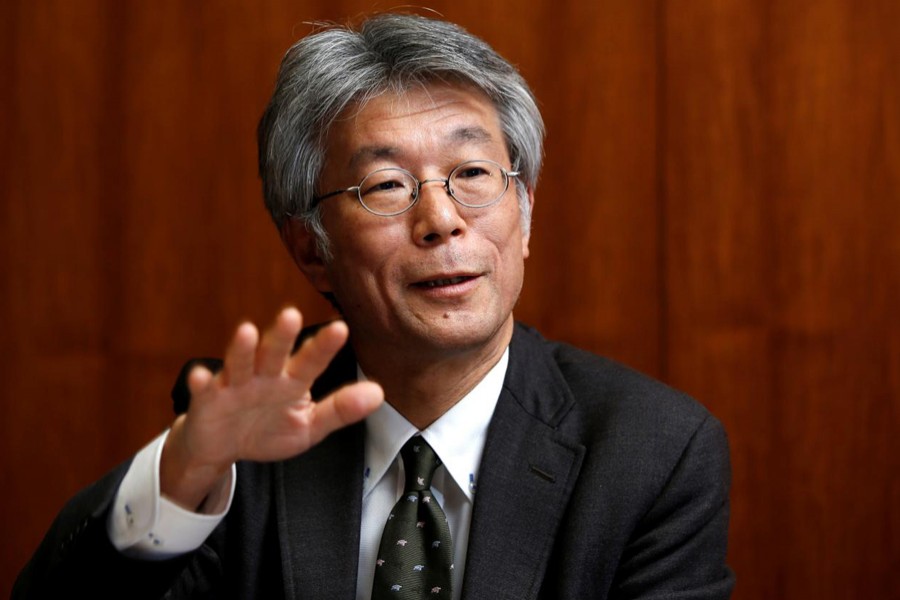Prolonged ultra-easy monetary policy is weighing heavily on Japanese bank profits but financial institutions should not expect business conditions to brighten dramatically even after the central bank raises interest rates, a senior Bank of Japan (BoJ) official said, reports Reuters.
Many regional banks could suffer losses in the long run as intensifying competition forces them to cut lending rates to attract borrowers in a shrinking domestic market, said BoJ Executive Director Atsushi Miyanoya.
"The BoJ's monetary policy, including negative interest rates, undoubtedly has a significant impact on bank profits," said Miyanoya, who oversees a division in charge of monitoring Japan's banking system.
"Even when monetary policy is eventually normalised, banks shouldn't expect profits to return to levels before ultra-easy policy was put in place," he told Reuters on Dec. 22.
After three years of heavy asset buying failed to fire up inflation, the BoJ last year adopted negative interest rates and a pledge to guide 10-year bond yields around zero per cent.
Miyanoya said the BoJ's policy has not excessively hurt bank profits yet, countering criticism from the financial sector that the costs of monetary stimulus were exceeding the benefits.
But he warned that banks may see profitability fall further if monetary policy remains ultra-loose, and called on regional banks to seek new revenue sources instead of meeting intensifying competition just by cutting lending rates.
"In the medium- to long-term, there's a risk many financial institutions may record net losses simultaneously. We can't deny the risk financial intermediation may not function properly at the same time," Miyanoya said.
"With the economy in good shape and banks having sufficient capital, now is the time to act," he said. "Mergers and consolidation are among options to improve profitability and efficiency."
Years of crisis-mode stimulus have squeezed bank margins in many advanced nations. The problem is more acute in Japan, where more than 100 regional banks compete in an overcrowded market that is shrinking amid an ageing population.
An industry watchdog said in October that more than half of Japan's regional banks lost money on their core business in the year ended March 2017.
Regional banks' plight has piled pressure on the BOJ to focus on the demerits of its policy, though Governor Haruhiko Kuroda said he saw no need to dial back stimulus now.
Even when the BOJ withdraws stimulus, banks may not see margins improve sharply due to severe competition, Miyanoya said.
"It's true our monetary policy is exerting downward pressure on banks' profits, but that's not the whole story," Miyanoya said.
"Monetary policy will be normalised at some point. But structural factors won't change. Japan's population will continue to decline and the number of companies will keep falling."


